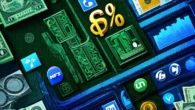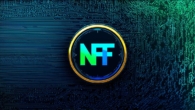
What is the purpose of NFTs
As blockchain technology continues to evolve, non-fungible tokens (NFTs) have emerged as a new class of digital assets that offer unique features and benefits compared to traditional cryptocurrencies. In this article, we will explore the purpose of NFTs and examine their potential use cases in various industries.
What are NFTs?
An NFT is a type of cryptocurrency that represents ownership and authenticity over a unique digital asset, such as artwork, music, videos, or even real-world objects. Unlike fungible tokens (such as Bitcoin and Ethereum), NFTs are not interchangeable and cannot be replaced by another token.
Instead, each NFT is assigned a unique identifier on a blockchain, which allows for the creation of a digital ownership certificate that confirms authenticity, rarity, and ownership over a specific asset. This makes NFTs valuable collectibles, as they are often associated with limited edition or one-of-a-kind items.
The Purpose of NFTs: Art, Music, and Collectibles

One of the primary use cases for NFTs is in the art and music industries. In these fields, artists and musicians can create unique digital assets that are stored on a blockchain and sold as NFTs to collectors. This allows creators to monetize their work and gain ownership over their digital creations, while collectors can own rare and valuable pieces of digital art or music.
For example, the artist Beeple created a digital artwork called “Everydays: The First 5000 Days” that was sold as an NFT for $69 million in 2021. Similarly, musicians such as Grimes have also sold their music as NFTs, allowing fans to own unique and rare pieces of digital art along with the music.
The Future of NFTs: Gaming and Finance
While NFTs are currently being used primarily in the art and music industries, they have the potential to revolutionize other industries as well. In particular, gaming and finance are two areas that could benefit greatly from the use of NFTs.
In gaming, NFTs can be used to represent in-game items such as weapons, characters, or land, allowing players to own and trade these items on a blockchain. This creates a new economy within the game, where players can buy, sell, and collect rare and valuable items.
In finance, NFTs can be used as security tokens to represent ownership over assets such as stocks, bonds, or real estate. This allows for more efficient and transparent trading of these assets, as well as the creation of new financial products that leverage the unique features of NFTs.
Real-World Use Cases: NFTs in Education and Healthcare
In addition to their use in art, music, gaming, and finance, NFTs have also found applications in other industries such as education and healthcare.
In education, NFTs can be used to represent digital certificates and degrees, allowing for more efficient and secure verification of academic credentials. This can save time and money for both educational institutions and employers, while also reducing the risk of fraud and counterfeiting.
In healthcare, NFTs can be used to represent medical records and other sensitive patient data, allowing for more secure and efficient sharing of this information between healthcare providers. This can improve patient outcomes and reduce the risk of errors and fraud.
The Challenges of NFTs: Regulation and Security
While NFTs offer many benefits, they also present new challenges that need to be addressed. One major challenge is regulatory uncertainty, as the legal status of NFTs varies widely across different countries and jurisdictions.
Another challenge is security, as NFTs represent valuable digital assets that are vulnerable to hacking and theft. This can lead to financial losses for both creators and collectors, as well as damage to the reputation of the NFT market as a whole.
The Future of NFTs: Opportunities and Challenges Ahead
Despite the challenges, the future of NFTs is bright, with many opportunities for growth and innovation in various industries. As blockchain technology continues to evolve, we can expect to see more creative use cases for NFTs emerge, from digital art and music to gaming and finance.
FAQs
1. What is an NFT?
An NFT is a non-fungible token that represents ownership and authenticity over a unique digital asset, such as artwork, music, or real-world objects.
2. What are some use cases for NFTs?
NFTs have potential use cases in various industries, including art and music, collectibles, gaming, finance, education, and healthcare.
3. What are the challenges of NFTs?







